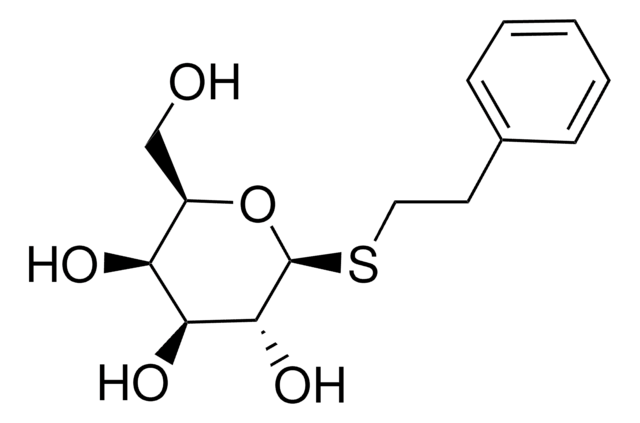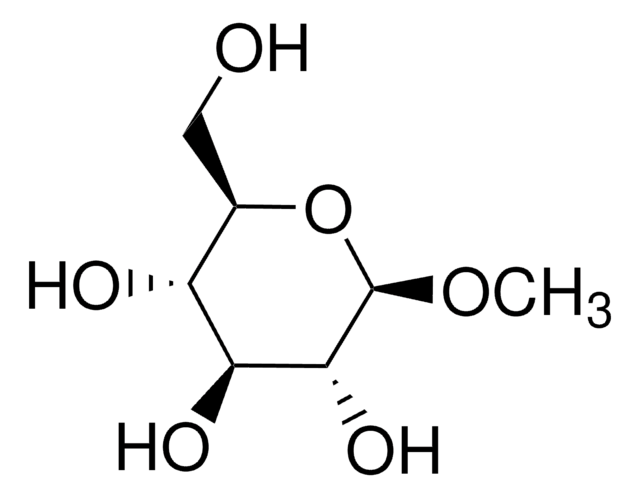M8146
Methyl-β-D-thiogalactoside
Synonyme(s) :
Methyl-1-thio-β-D-galactopyranoside, TMG
About This Item
Produits recommandés
Source biologique
synthetic
Niveau de qualité
Essai
≥98% (TLC)
Forme
powder
Technique(s)
thin layer chromatography (TLC): suitable
Couleur
white
Solubilité
water: 50 mg/mL, clear, colorless
Température de stockage
−20°C
Chaîne SMILES
CS[C@@H]1O[C@H](CO)[C@H](O)[C@H](O)[C@H]1O
InChI
1S/C7H14O5S/c1-13-7-6(11)5(10)4(9)3(2-8)12-7/h3-11H,2H2,1H3/t3-,4+,5+,6-,7+/m1/s1
Clé InChI
LZFNFLTVAMOOPJ-PZRMXXKTSA-N
Vous recherchez des produits similaires ? Visite Guide de comparaison des produits
Description générale
Application
Conditionnement
Autres remarques
Mention d'avertissement
Warning
Mentions de danger
Conseils de prudence
Classification des risques
Eye Irrit. 2 - Skin Irrit. 2 - STOT SE 3
Organes cibles
Respiratory system
Code de la classe de stockage
11 - Combustible Solids
Classe de danger pour l'eau (WGK)
WGK 3
Point d'éclair (°F)
Not applicable
Point d'éclair (°C)
Not applicable
Équipement de protection individuelle
dust mask type N95 (US), Eyeshields, Faceshields, Gloves
Faites votre choix parmi les versions les plus récentes :
Déjà en possession de ce produit ?
Retrouvez la documentation relative aux produits que vous avez récemment achetés dans la Bibliothèque de documents.
Notre équipe de scientifiques dispose d'une expérience dans tous les secteurs de la recherche, notamment en sciences de la vie, science des matériaux, synthèse chimique, chromatographie, analyse et dans de nombreux autres domaines..
Contacter notre Service technique









